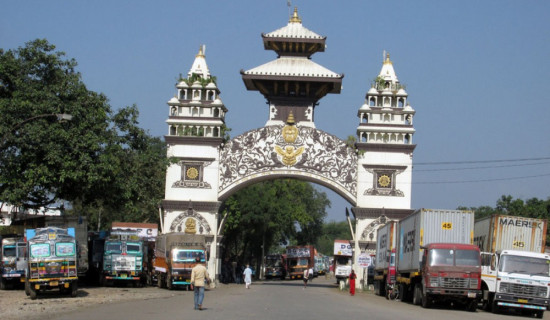- Sunday, 15 February 2026
Media, Democracy Bear Symbiotic Tie
Democracy and media complement each other. Democracy provides constitutional guarantee of press freedom while media helps contribute to flourishing the democratic system. In libertarian societies, there is a guarantee for the freedom of opinion and expression as well as right to information, which empowers people with basic as well as critical information about development, public expenditure, functioning of the public offices and operation of the government. Informed and aware people can question the government for their rights and the latter’s responsibilities and continue to be a formidable force for authorities should they deviate from their duties and liabilities. Informed people help to solidify the foundations of democracy in any country and society.
Media provides platform for leaders and public to share their views and feedback, and help reach out to a large number of audience, making the propagation of views, ideologies and policies easy and economic. Without information, we can’t expect rational discussions and debates even at the grassroots level, let alone lobbying for any policy or action from the government. Mass media is the mirror of society while journalism is the exact reflection of the society. Other forms of mass media like cinema, advertising and fictions exaggerate the situation or use fantasy to tell the story in order to attract audience and make greater impact. Yet these forms of communication also require independence, no-censorship and right to information in order to function in a free, creative and commercial manner.
Fourth pillar
Media is considered the fourth pillar in a making of a State after government, parliament and court. While these three check and balance each other through extraordinary and special rights provided by the constitution, the press acts as a watchdog of all these agencies. Media is praised and celebrated for its ‘watchdog’ role which means it conducts regular surveillance of the environment and reports the truth. It continuously fights for the freedom to acquire, store and disseminate information and in the process benefits the society as well. Take an example from Nepal. The origin of the April Movement in 2006 could be traced back to King Gyanendra’s efforts to subdue media or force them to be ‘lapdogs’. But it became counterproductive and media played a very crucial role in the restoration of the democracy. Media and journalists across the globe are still fighting against the government for the press freedom which was curtailed by the dictators in different countries.
However, to contribute to the development, social change, economic growth, media should go beyond its fundamental functions of informing and educating, and strive to creating awareness, motivating masses for social change and creating environment for equality. Media construct reality for the common people, it documents the history. People view the society, politics, government, international affairs and even their local happenings through the perspective formed by the media. They shape their worldviews with the media feed including explanation, analysis and interpretation. The developer of the agenda-setting theory of media, Maxwell McCombs and Donald Shaw, maintain that media set the agenda including their daily gossips and social interactions for the common people, and the more remote the issue, the greater the impact of media.
Another function of media is to create linkage with various communities across the country, and even the globe. People of Taplejung not only know the people of Bardiya but also sympathise with them during the disasters and help them through various means. Media helps people in identifying with other communities. Apart from reporting the facts and events, through the advocacy of the issues and agenda of underprivileged, marginalised, Dalits and disabled people, media fulfills its duties and responsibilities to the society and people. Similarly, it functions as a bridge between the people and the government where the demands of people are communicated to the authorities and programmes and policies of the government are distributed and interpreted for the public.
Creating environment for doing business and development through the policy lobbying, reporting success stories and supporting private sector initiatives is also the responsibility of the press. Business expansion can create jobs, increases per capita income and boosts market activities. Increased purchasing power of people results in increased demand for goods and services which further attracts investment from domestic as well as foreign. Therefore, media should promote investment in business and industries and support entrepreneurs in their entrepreneurship ventures.
Challenge
However, there is a great challenge to maintain balance and credibility while maintaining objectivity in the age of thrilling intra- and inter-media competition and rapidly changing media scenario where there is very less options for predictability for any media channel. Every medium today is fighting for its own survival and in that process, some of them have exhibited an indifference to the tenets of journalism and focused on making money by misusing the medium and journalism practice. Breach of individual and business privacy, unbalanced portrayal of businesspersons and political leaders, reliance on interest groups for news information and lack of system for fact check to find fake news have been some major anomalies roiling Nepali journalism these days. Claim of Rabi Lamichhane, leader of Rastriya Swatantra Party and former Home Minister, that media is misused by the media owners and advertisers for their vested interest bears some amount of truth.
Maintaining independence from the media owners, advertisers and government, thus, is a big challenge. The media in India that claims to be the world’s largest democracy, with some exceptions, have almost surrendered to the government that it has notoriously nicknamed ‘Godi media’ (the one on the lap of the government) rhyming with the ‘Modi government’. If media freedom is compromised, there are high chances that media itself is responsible to some extent.
(Dhakal is a reporter at TRN.)

















